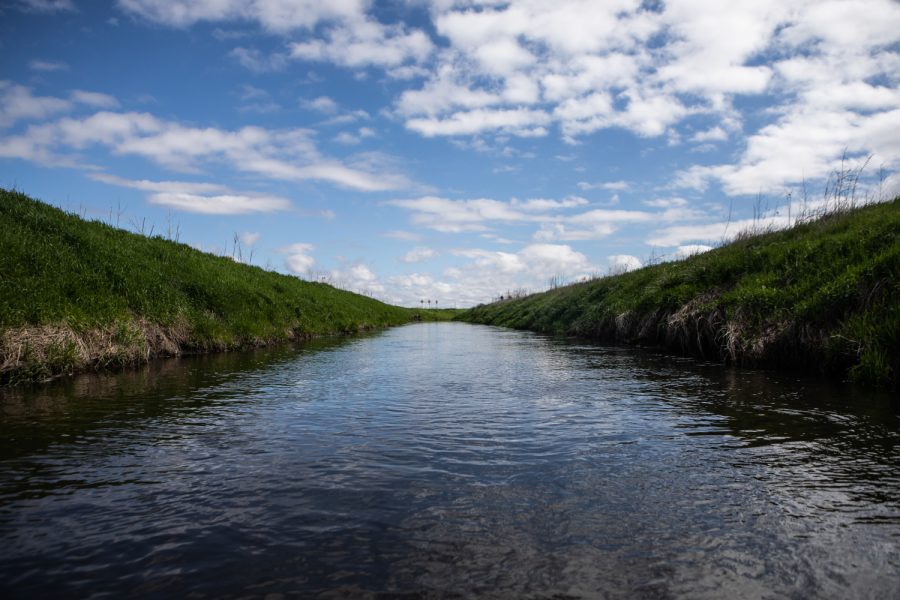Opinion: Environmental politics shouldn’t be destructive
Rapid deregulation, such as the EPA’s recent WOTUS rollbacks, are part of trend of ecological irresponsibility.
A narrow section of the Iowa River’s west branch is seen on May 20, 2019. The expedition, which spanned 27 days covered the entire length of the 329 mile river, sought to provide insight into issues of water quality within the state. Along the way, Daily Iowan Photojournalist Ryan Adams conducted nitrate tests of the water, talked with Iowa citizens from a diverse set of backgrounds to understand how Iowans view the issue. (Ryan Adams/The Daily Iowan)
September 18, 2019
There’s plenty of news and plenty of outrage about the news. Because of our rambunctious media cycle, meaningful events can get buried in all the noise. One of those under-the-radar stories was Environment Protection Agency’s rollback of a rule that redefined the “waters of the United States.”.
Talking about an environmental regulation with a bad acronym isn’t the most exciting way to start an article, but it’s important. Basically, President Trump’s EPA has decided federal water-pollution regulations apply in fewer areas. The move has been met with support that’s almost entirely Republican — including Iowa Sens. Chuck Grassley and Joni Ernst — continuing a disastrous trend of partisanship in environmental policy.
It shouldn’t have to be this way. For people such as me who are concerned about the environment — in this case, guaranteeing clean water — it’s as if Republicans don’t just disagree, they’re actively against protecting the world in which we live.
There is legitimate apprehension about the GOP’s rampant deregulation tactics, science to back up that concern, and those who speak up are dismissed out of hand as unreasonable, tree-hugging maniacs. But it wasn’t necessarily always like this.
I might get in trouble for speaking highly of President Nixon, but he got at least one thing right: the environment.
“Shall we surrender to our surroundings, or shall we make our peace with nature and begin to make reparations for the damage to our air, to our land, and to our water?” Nixon said during his 1970 State of the Union address.
Reparations to the air as if we hurt the atmosphere’s feelings sounds like some hippy-dippy nonsense, but it’s the words of a Republican president in his biggest speech of the year. What Nixon understood then — and what we, all of us, should understand now — is that these issues affect everyone and everything else.
When we say “environmental issues” to refer to climate change, clean air, or the current debate over water pollution, it sounds as if we’re putting in a box. Unlike many other issues, like how to fund education or transportation systems, government action (or inaction in the water decision) on the environment affects everything else.
We all need food to eat, air to breathe, and water to drink. It’s not some sort of political philosophy driving that; it’s preserving the basic building blocks of our public health. And to quote Count Rugen in The Princess Bride, another bad guy who got one thing right, “If you haven’t got your health, you haven’t got anything.”
It’s dubious to say we can simply revert to some sort of halcyon days where everyone agreed on everything. And of course, there was extreme divides during the Nixon administration — such as the president’s anti-integration stances and his launch of the disastrous War on Drugs — but that’s a history lesson for another time.
The point is issues so ubiquitous and consequential shouldn’t be blemished by partisanship. We need an environment that benefits everyone, and we’re not going to get that by just deregulating everything.





